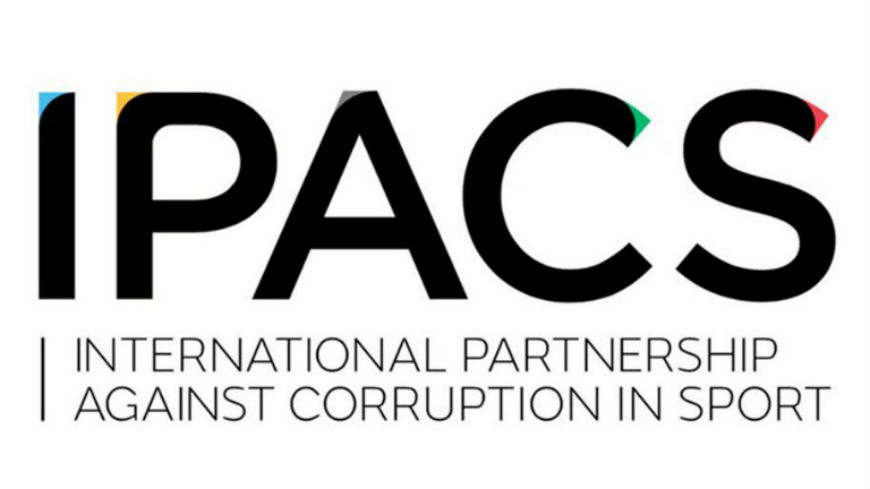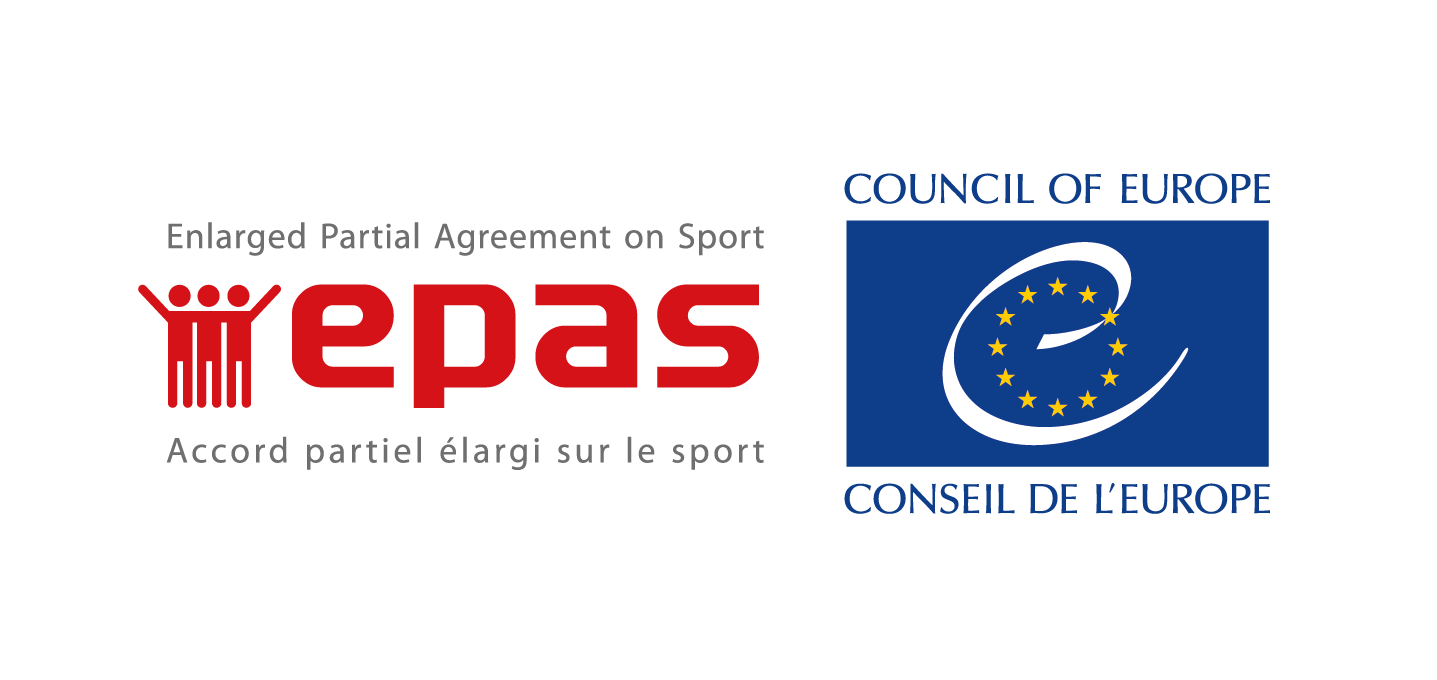International Partnership Against Corruption in Sport
IPACS is an informal network bringing together intergovernmental organisations, international sports organisations and governments, combining the efforts of the various stakeholders in the fight against corruption in the governance of sport.
It came about based on the knowledge that corruption in sport is a complicated and trans-border phenomenon, requiring urgent concerted effort at international level between governments, intergovernmental organisations and sports organisations.
A beginning of a partnership
The International Partnership Against Corruption in Sport was founded in light of the following adopted declarations:
- the Anti-Corruption Summit organised by the UK Government in London (May 2016);
- the Council of Europe Conference of Ministers responsible for Sport (November 2016), and
- the International Forum for Sports Integrity organised by the International Olympic Committee (IOC) in Lausanne (February 2017).
All of these events called for the setting up of an international discussion and co-ordination platform for governments, international organisations and the international sports movement.
In the early days of the setting up of IPACS, its founder members promoted IPACS at several events to attract visibility and interest from governments and sports organisations. These included the SportAccord Convention, Bangkok (15-20 April 2018), the OECD Forum (29-30 May 2018), the GRECO session (18-22 June 2018) and the Council of Europe Conference of Ministers responsible for Sport, Tbilisi (16 October 2018).
How does IPACS work?
IPACS was established as an informal network, with no legal personality, no budget and no secretariat. It relies on the joint efforts of its partners who cover the travel costs of their own experts, taking turns to host and organise meetings. However, it does have a Partnership Support Office jointly overseen by the IOC and the UNODC.
The central body of IPACS is its Steering Committee (originally called Working Group) which involves:
- governmental representatives from any country interested in joining the partnership, current members: Argentina
, China
, France
, Germany
, Japan
, South Africa
, Switzerland
, United Kingdom
and the United States of America
.
- International organisations (OECD, Council of Europe, UNODC, the Commonwealth)
- and International sports organisations (ANOC, ASOIF, IOC and GAISF).
For more information on how to join the Partnership, please consult the IPACS Governance Guidelines or express interest via the Partnership Support Office.
The Steering Committee meetings are prepared by a Bureau (formally the Core Group) which is elected for a two-year term. The current composition of the Bureau is as follows (two-year mandate from November 2020 to November 2022):
- Chair: Canada
- Vice-Chair: International Olympic Committee (IOC)
Four founding partners of the partnership, namely,
- Council of Europe (CoE)
- Organisation for Economic Cooperation and Development (OECD)
- United Nations Office on Drugs and Crime (UNODC)
- United Kingdom of Great Britain and Northern Ireland
- Australia
;
- Association of Summer Olympic International Federations (ASOIF);
- The Italian National Olympic Committee (CONI).
The Chair will convene a general conference, if possible, every two years, consisting of the full membership of the Partnership, and other relevant stakeholders and entities, as appropriate. The purpose of the conference will be, among other things, to raise awareness of the Partnership’s work; explore ways to further enhance collaboration; identify emerging challenges; and to promote the adoption and/or implementation of the Partnership's various outputs. The first general conference took place on 15 December 2019 in Abu Dhabi.
What issues does IPACS address?
The priority given by the IPACS partners is not to turn it into an institution, but to work towards the completion of certain tasks which are aimed at improving co-ordination and measures taken to fight corruption in sports governance: with this in mind, four task forces have been set up to deal with the following concerns:
- Task force 1: reducing the risk of corruption in public procurement relating to sporting events and infrastructure (co-ordinated by the OECD)
- Task force 2: ensuring integrity in selection of major sporting events (co-ordinated by the OECD)
- Task force 3: optimising the processes of compliance with good governance principles to mitigate the risk of corruption (co-ordinated by the Council of Europe/EPAS)
- Task force 4: enhancing effective cooperation between law enforcement, criminal justice authorities and sport organisations (co-ordinated by the IOC and the UNODC)
Although the manipulation of sports competitions can imply corrupt behaviour (e.g. match-fixing), it is not covered by IPACS since it is already the subject of intergovernmental standards and co-ordinated sports regulations, and already has co-operation networks in place which are dedicated to the problem.
The work of Task Force 3
Task Force 3 includes representatives from the IPACS Steering Committee, from international sports organisations and governmental bodies, and independent experts, who will provide expertise in the fields of corporate governance, public governance, sports governance, anti-corruption, compliance and monitoring.
The objectives of Task Force 3 are to develop a benchmark for sports governance, recognised both by the international sports movement and governments, and applicable at international and national levels and to outline options for providing advice, support and monitoring compliance with the benchmark at international and national level.
This benchmark was approved in 2020 and focuses on five different dimensions:
- Transparency,
- Integrity,
- Democracy,
- Development and Solidarity,
- Checks and Balance/Control Mechanisms.
Implementation guidelines for the benchmark are currently being drafted by a restricted Drafting Group, composed of members of the Task Force. This drafting process is expected to be completed by the end of 2022.
BenchmarkExecutive summary
What is the Council of Europe's role
in IPACS?
The Council of Europe’s commitment within IPACS comes from EPAS and from GRECO and will draw on its vast expertise in these two fields of policy work.
It is also committed to sharing information about IPACS with all its member states, in particular when conveying updates on IPACS activities to its committees of experts (Governing Board of EPAS, GRECO), to the Committee of Ministers and to its Conferences of Ministers.
The Council of Europe provides a consultation framework on the action and positions defended by European government representatives within IPACS, called the European Contact Group on IPACS. Last but not least, the Council of Europe has taken on the co-ordinator role of Task force 3.
Watch the highlights video from the IPACS General Conference that was held on 15 December 2019 at the Abu Dhabi National Exhibition Centre.
Web announcement on the first meeting of the Working Group
Report of the first meeting of the Working Group
Web announcement on the second meeting of the Working Group
Report of the second meeting of the Working Group
Joint statement published following the second meeting of the Working Group
Steering Committee meeting of 16 November 2020
For more information on how to join the Partnership, please consult the IPACS Governance Guidelines or express interest via the Partnership Support Office.






